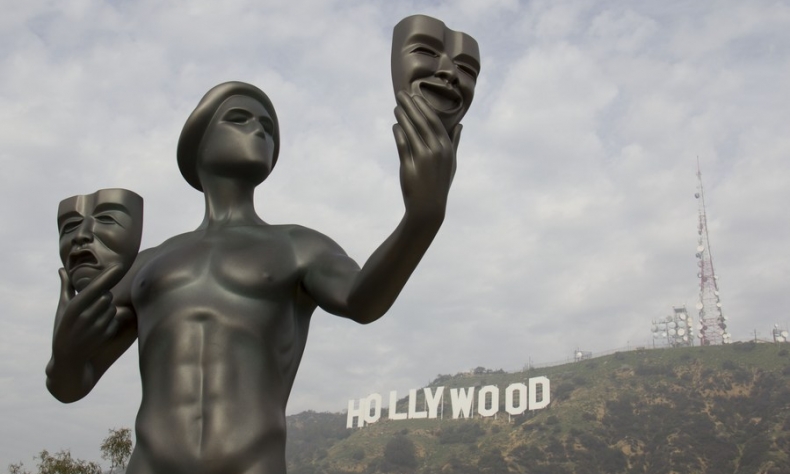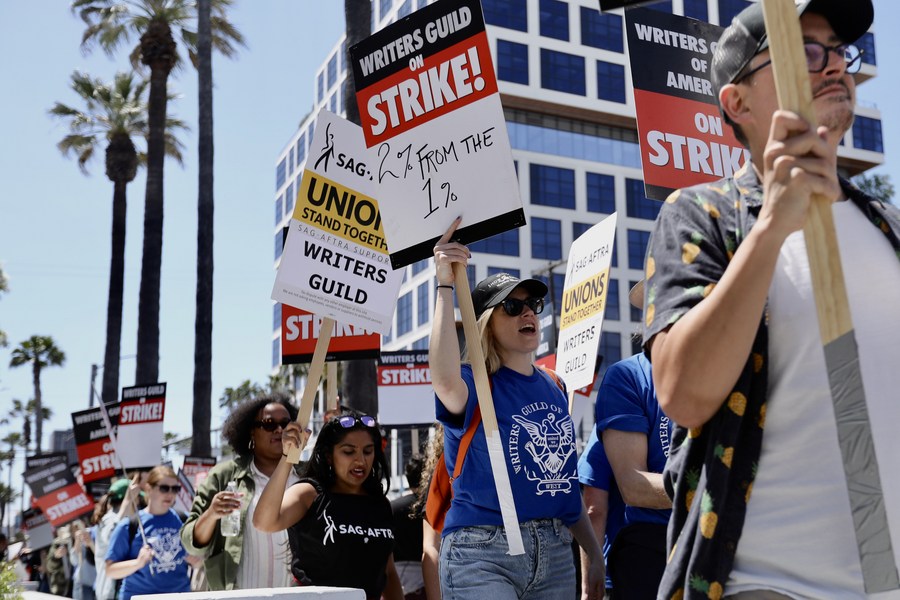What’s at Stake in the Writers’ Strike

Together, streaming and AI are putting additional pressure on an already troubled industry.
There is a lot at stake with the ongoing Hollywood strikes. In May, the Writers Guild of America went on strike. In July, SAG-AFRTRA, the actors’ guild, initiated a strike for related reasons. Streaming services and the promise of AI’s potential (not the reality) have overhauled the media ecosystem and created a raft of issues for production studios and writers.
Let’s start with streaming, which has had a real impact on media consumption (unlike AI). Viewership of cable and broadcast television worldwide is declining as more and more people consume shows exclusively via streaming services.
In July 2023, for the first time, cable and broadcast television in the United States accounted for less than 50% of views of episode-based entertainment productions. The same thing is happening in Great Britain: only 54% of young Brits watched any live television at all. Meanwhile, American streaming viewership increased by 25% in July, with YouTube, Netflix, and Amazon Prime Video being the most popular services.
Since Hollywood is the epicenter of media creation in the West, the results of the strike will impact the policies of production and media companies around the world. The writers’ unions in other countries have instructed their members not to cross the picket line to work for American studios.
For writers, one problem with streaming is that the pay is typically lower, while the rate for residuals is significantly lower. Previously, writers would earn residuals for television shows each time a show was aired. For streaming, writers earn residuals based on a formula related to the number of subscribers on a platform that buys a show.
“We used to get very healthy residuals,” Kristine Huntley, a writer working on the AppleTV+ series “Surfside Girls,” said. Now, the residuals for many are pennies on the dollar. The guild has proposed linking residuals, in part, to the viewership of a show.
Some studio executives have argued that they have already negotiated increased streaming residuals starting in 2022. Writers say they should be paid higher fees for shows available to subscribers outside of America, but the price of streaming services is lower in many developing countries than it is at home.
The economics of streaming and studio writing are shrouded and complicated, as things often are when innovations arise. For me, the argument about AI is much more straightforward.

Generative artificial intelligence cannot – and should not – generate creative output that vultures the work of actual writers and artists. First, AI is not effective enough to write anything creative or entertaining. It just generates random content based on stolen art created by real people.
That’s not to say AI has no possible use whatsoever in creating art or writing. AI that is directed by humans can be used as one tool in an artist’s toolbox. It can, for example, help to replace backgrounds or cover up and alter unwanted parts of a photo. There may be many uses, but a human must direct all of them, not just let them operate independently for the purpose of putting artists out of work.
Profit-oriented corporations and self-assured “entrepreneurs” don’t seem to understand this point; they just look at the trend of AI and think “money.” The studios think in terms of charts, not in terms of emotions. AI also doesn’t have emotions, which is part of the reason why it can’t portray true emotions. However, a good story needs emotions, humor, and human relationships. If the studios go down the path of trying to create content artificially, they will hurt themselves as well as writers.
Together, streaming and AI are putting additional pressure on an already troubled industry. According to Sasha Stewart, a TV writer based in New York, where late-night comedy shows are filmed, writer pay has declined by 4% in absolute terms since 2008.
A 2018 article in “Vanity Fair” documents how writers’ rooms had already been cut in size. Some shows were relying on “mini-rooms,” which consisted of fewer writers and didn’t offer long-term employment.
The impact is being felt in other businesses in Los Angeles that are supported by the entertainment industry. Crew members who work on the sets of shows that are not being filmed are out of work. Casting directors don’t have shows to cast. Caterers who would serve the sets of productions are hurting.
The 2008 writers’ strike had a $2 billion impact in economic terms. Dana Feldman of Forbes estimated that this year’s strike could exceed $3 billion in losses. But it may be a necessary loss to protect the livelihoods of the writers. If the studios cut writers’ wages or employment, then that has a major impact on the economy.
 Facebook
Facebook
 Twitter
Twitter
 Linkedin
Linkedin
 Google +
Google +










